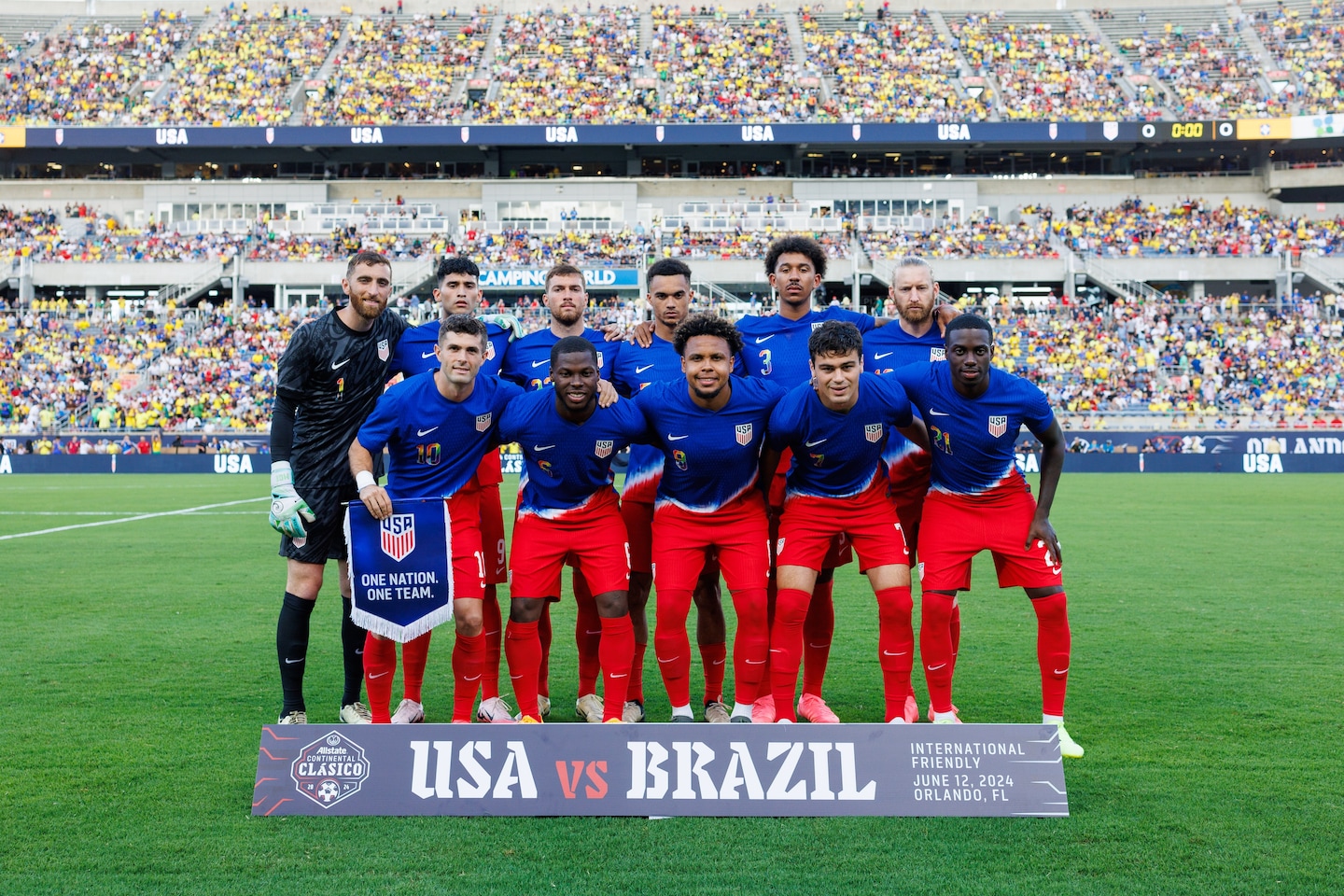If the U.S. team was going to rebound in time for a breakthrough at the 2026 tournament on home ground, it would do so with many players not yet of legal age to purchase a beer.
“Some of these guys were babies,” Berhalter said, reflecting on training camps early in his tenure. “Eighteen years old, 17 years old, and now they’re prominent members of the team. They’ve grown up, and we’ve seen their journey. It’s been incredible really to be a part of seeing them go through that stage of life and really mature.”
But players who have evolved on and off the field, who have competed in the UEFA Champions League and in the 2022 World Cup, who have brought hope to a country emerging from soccer’s backwater, understand they need to grow up in other ways this summer.
Leading to the 2026 World Cup, the U.S. team will face no greater test than Copa América, a fabled tournament unspooling over three weeks at 14 U.S. venues and featuring South America’s finest, plus six North American guests.
“Now it’s time to prove ourselves,” star forward Christian Pulisic said. “We’ve learned a lot. We put in some good performances in the World Cup. We’ve shown people this team can play, and now it’s about not just putting in those performances but finding a way to get results in the biggest matches. That’s the next step for us.”
The first step in that pursuit comes Sunday with the Group C opener against Bolivia in Arlington, Tex., followed by matches against Panama on Thursday in Atlanta and group favorite Uruguay on July 1 in Kansas City, Mo.
Because it’s not an imposing group — neither Bolivia nor Panama is a championship contender — anything short of a top-two finish and a place in the quarterfinals for the U.S. team would be rendered an abject failure. With passage into the knockout stage the bare minimum, Berhalter and his players recognize the time to topple a world power, such as Uruguay in group play or Brazil or Colombia in a possible quarterfinal, is drawing closer.
“There’s no point hiding from it: Football is judged on results or outputs,” forward Folarin Balogun said. “So it would be naive to say the performances are the only thing that matters. Performances, of course, are important, but we need results.”
It’s a pivotal moment for a team that has grown up together — 20 of 26 on the Copa América roster range between ages 21 and 26 — and calls itself a “brotherhood.”
Personal growth has been marked by fatherhood (midfielder Tyler Adams, 25, is a new dad), engagement (midfielder Gio Reyna, 21, proposed last month) and marriage (defender Mark McKenzie, 25, tied the knot during a break in training camp last week).
“I think my first call-up I was single and I hadn’t even met my wife yet,” said goalkeeper Matt Turner, a 29-year-old late bloomer on the young squad. “And now I’m married with two kids.”
Professional development has come through moves to clubs in prominent European leagues and increasing influence within the national team.
The Americans have dominated their rivalry with Mexico and earned notable draws, such as the deadlock with England at the 2022 World Cup. But it has not beaten a prominent South American or European team in official competition since it stunned top-ranked Spain in the 2009 FIFA Confederations Cup semifinals.
After the first two Copa América matches, the Americans will get their chance.
“Everyone within our camp knows it’s another opportunity to compete with teams we don’t get to normally compete against,” Adams said. “Of course, we’re trying to advance in knockout games. We’re not going to put pressure on ourselves in that matter, but showing that under big pressure situations we come through is important.”
Pre-Copa América tests against South American brawn brought both warning signs (a 5-1 loss to Colombia) and encouragement (a 1-1 draw with Brazil).
“We got a taste of [South American soccer] in the friendlies, but now that the lights are really on, it’s important for us to put our foot down and put out a good performance,” Turner said.
It’s also important for Berhalter, whose future could hinge on the team’s performance. Early elimination would undoubtedly sound alarms at U.S. Soccer Federation headquarters and raise the specter of a coaching change.
Berhalter accomplished his early goals of reestablishing the team’s foundation and instilling a strong culture.
“I remember our first Gold Cup in 2019,” he said. “We’re having to remind them about curfew. They’re young kids. Now it’s completely different; the whole program has evolved. The things we’re talking about now are details. We’re trying to get every detail right, whereas before it was: What’s the big picture? How are we going to move these guys?”
As the evolution continued, Berhalter took as much stock in the performances as the results. Along the way, the team enjoyed winning continental trophies, too.
Copa América is “a great opportunity to test ourselves, to play against the best in South America and a good chance for us to see how far we’ve come in the past three to four years,” defender Tim Ream said.
Berhalter calls Copa América a “building block” for the World Cup. But with his players entering their prime years, results — and, in particular, results against strong opposition — are beginning to weigh more heavily on the operation.
“It’s a huge opportunity for us,” Reyna said. “There’s so much quality throughout the tournament. … It’s always nice to play in these games and to do well, but collectively as a group, it’s more important we can really show the world what we can do.”
#USMNT #ready #Copa #América #growing #Gregg #Berhalters #program,
#USMNT #ready #Copa #América #growing #Gregg #Berhalters #program
